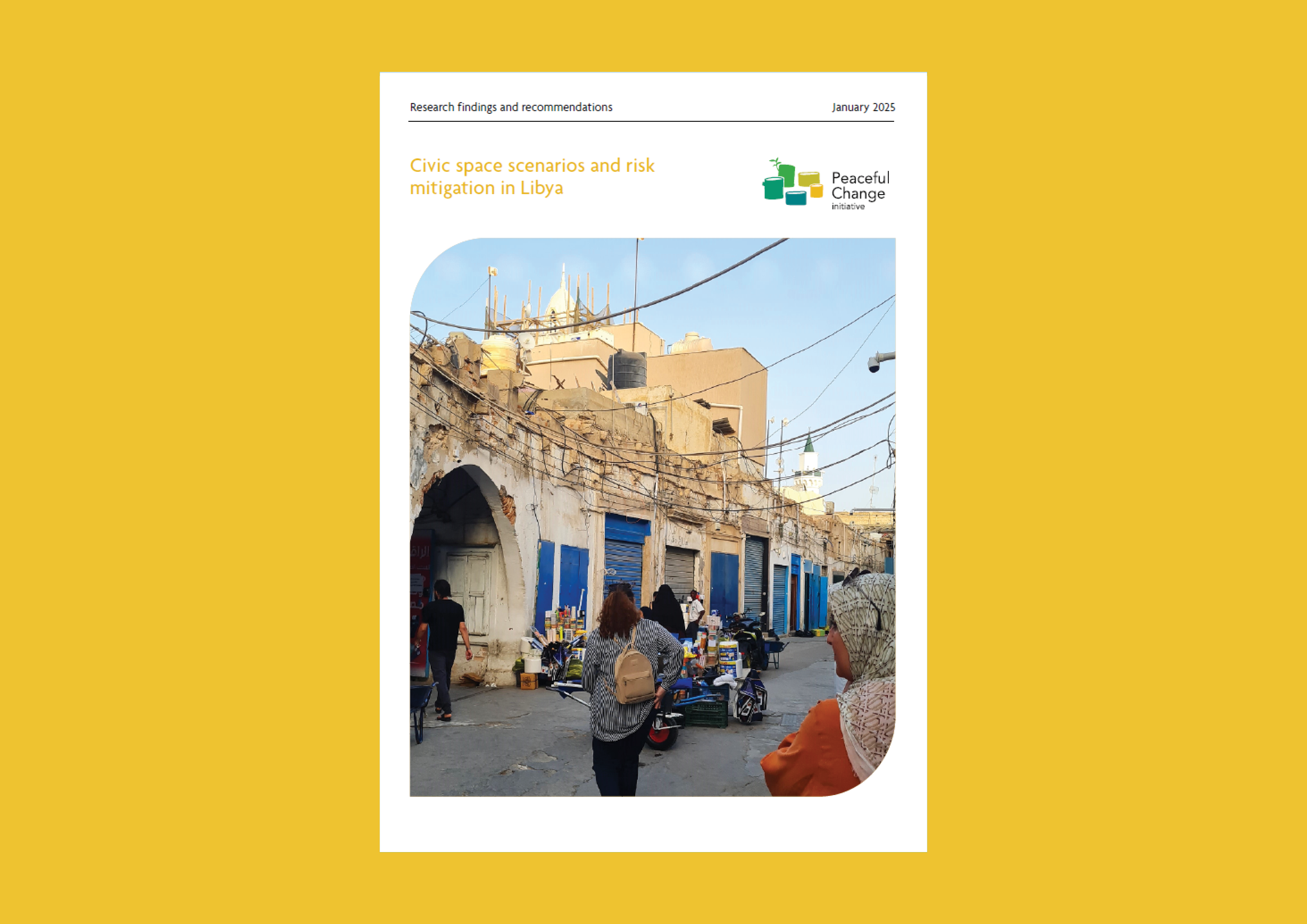Why we need to protect and expand civic space
A safe, open, and diverse civic space, where people can freely come together to take collective action or advance shared interests, is a prerequisite for sustainable peace. This civic space, however, often shrinks during conflict, and is globally under increased pressure from authoritarianism, corruption, mis/disinformation, and discrimination.
We work in partnership with civil society organisations to strengthen and protect civic space and expand it wherever possible.
For example, in Ukraine, we helped to embed dialogue facilitators in municipalities affected by the war in the Donbas and the annexation of Crimea, before Russia’s full-scale invasion in 2022. The groups helped deal with social integration conflicts that local governments struggled to address using just their existing procedures and mechanisms. In some cases, the dialogue teams became fully integrated into the day-to-day work of the municipalities, allowing them to address more conflicts without overburdening their administrative mechanisms.
A closer look at how we support civic space
Here are some of the ways we work with civil society organisations to protect and expand civic space:
Expanding the civic space in Libya
Civil Society organisations and movements in Libya represent an important avenue for citizens to participate in peace and democratisation efforts during the political transition. However, civil society in Libya has been subject to increased scrutiny, with authorities imposing a crackdown on civil and political freedoms.
PCi is providing technical and funding support to strengthen the skills of civil society organisations across Libya. With this support, they will be better placed to navigate the challenges and risks associated with the political transition, while also working towards strengthening their sustainability in Libya’s growing civic space.
Building the skills of civil society in Georgia and Abkhazia
In Georgia and Abkhazia, we have worked on both sides of the conflict divide to help build the skills of civil society to manage conflict and to bring the voices of marginalised and conflict-affected communities to policy dialogue. We have supported local organisations looking to design their own community-level interventions, helping them to integrate conflict analysis and peacebuilding project design into their work. We have also worked with local partners to mitigate the impact of the COVID-19 epidemic in Georgia and Abkhazia by strengthening the ability of community groups in isolated communities to analyse and communicate their needs to authorities and establish local mechanisms for responding to emerging issues.
Regional Social Peace Hubs in Libya
PCi convenes Social Peace Partnerships, which function as community-led local conflict management mechanisms across Libya, to operate as regional Social Peace Hubs. This enables leaders from different towns in Libya to think and act beyond the narrative of “city states” isolated from a share of the Libyan national identity. Through the Hubs, leaders think regionally and nationally about how to solve problems faced by multiple communities and build much needed networks between towns. The Hubs have demonstrated capacity to solve shared problems through regional approaches that build relationships between towns and between the towns and national authorities.
Supporting civil society organisations in Kosovo and Serbia
PCi has awarded various institutional grants to support mission-led civil society organisations in Kosovo and Serbia to empower them to pursue the core objectives of their mission to achieve social change within their own societies. We work with civil society organisations before and after the initiatives on the design of activities, so they have a peacebuilding impact. We also provide accompaniment and monitoring for the programme of activities. This approach has been used with a range of organisations targeting issues such as cultural and educational opportunities for ethnic minorities, media discussions that engage multiple communities, and bringing minority voices into local decision making.
Recent resources

Turkey’s approach to stabilisation: implications for the peacebuilding sector
This report examines Turkey’s increasing engagement in stabilisation and peacebuilding efforts.

Civic space scenarios and risk mitigation in Libya
This paper highlights how international donors international donors who partner with Libyan CSOs can help protect and expand civic space

Solidarity statement for Syria
PCi stands in solidarity with our Syrian friends and colleagues as they delight in the removal of the Assad Regime
